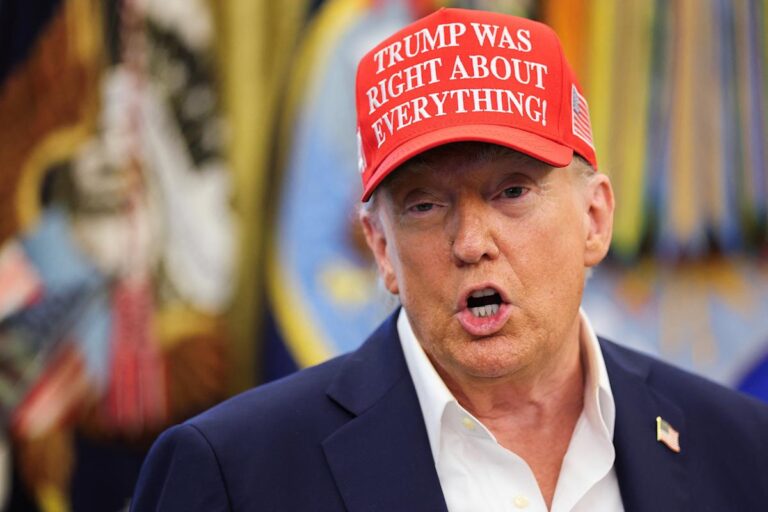The US government has taken an $8.9 billion, 9.9% stake in Intel (INTC), buying 433.3 million shares in the chipmaker at a price of $20.47 per share.
The government’s investment in Intel will be passive ownership, with no Board representation or other governance or information rights, Intel said in a statement. Intel said the government also agreed to vote with the company’s Board of Directors.
Intel said the government’s equity stake will be funded by the remaining $5.7 billion in grants previously awarded but not yet paid to Intel under the US CHIPS and Science Act and $3.2 billion awarded to the company as part of the Secure Enclave program.
Intel will continue to deliver on its Secure Enclave obligations and reaffirmed its commitment to delivering trusted and secure semiconductors to the US Department of Defense. The $8.9 billion investment is in addition to the $2.2 billion in CHIPS grants Intel has received to date, making for a total investment of $11.1 billion.
The announcement late Friday comes after President Trump said earlier in the day his administration would take a 10% stake in ailing chip giant Intel. Trump called it a “great deal.” Intel’s stock closed up 5.5% after the president’s announcement.
Intel stock fell 1% in after-hours trading on Friday after details of the deal were confirmed.
“President Trump’s focus on U.S. chip manufacturing is driving historic investments in a vital industry that is integral to the country’s economic and national security,” Intel CEO Lip-Bu Tan said in a statement. “We are grateful for the confidence the President and the Administration have placed in Intel, and we look forward to working to advance U.S. technology and manufacturing leadership.”
On Tuesday Treasury Secretary Scott Bessent told CNBC that the administration was exploring converting Intel’s funding from the Biden-era CHIPS Act into equity aimed at stabilizing the company’s US manufacturing business.
Intel is dealing with multiple issues across its businesses. Its manufacturing division is bleeding cash, just as its legacy computer chip segment forfeits market share to rivals Advanced Micro Devices (AMD) and Qualcomm (QCOM) in the PC space. Intel is also woefully behind AMD and Nvidia (NVDA) in the AI race.
The company’s market capitalization of $111 billion is less than half of its value in 2021. And CEO Lip-Bu Tan has been forced to lay off 15% of the company’s workforce and shelve plans to build plants in Europe.
But the troubled chipmaker is the only large-scale US-based leading-edge chip manufacturer, giving it geopolitical significance as the nation looks to reshore semiconductor production.
Story Continues
